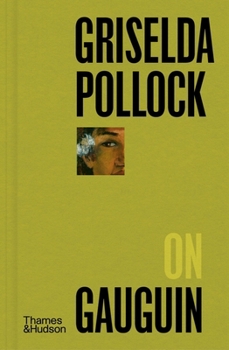Griselda Pollock on Gauguin
Acclaimed feminist art historian Griselda Pollock dismantles the racist, sexist and imperialist underpinnings of works by Paul Gauguin and others as they competed for pre-eminence in the European avant-garde of the 1880s and 1890s. First delivered as a lecture in 1993, long before decolonizing and decentering the field of art history became an urgent clamor in art historical readership, this essay remains a powerful and ever-relevant riposte to mainstream art historical narratives.
Through a thorough textual and social reading of Gauguin's 1892 painting of hisTahitian wife, Manao Tapapau, Pollock proposes a new theory about the avant-garde asa series of gambits, a game of reference, deference and difference. Pollock's intersectional reading of these avant-garde works reveals how race and gender colored the colonial imaginary and exposes the way in which racist discourse structures art and art history. By posing questions of cultural, sexual, and ethnic difference, Pollock endeavors to make us all self-critical, not only in regard to the gender, but also the color of art history.





